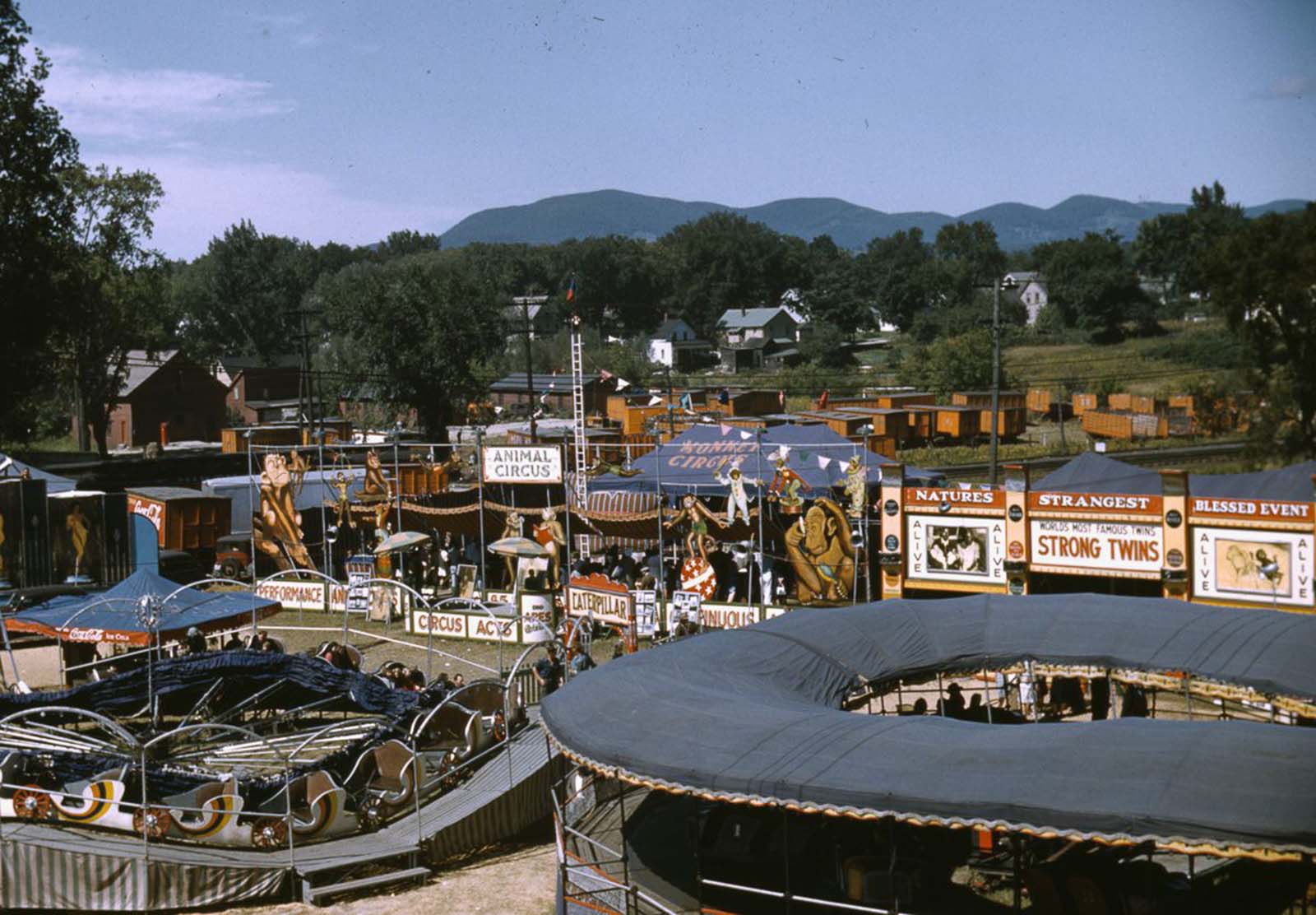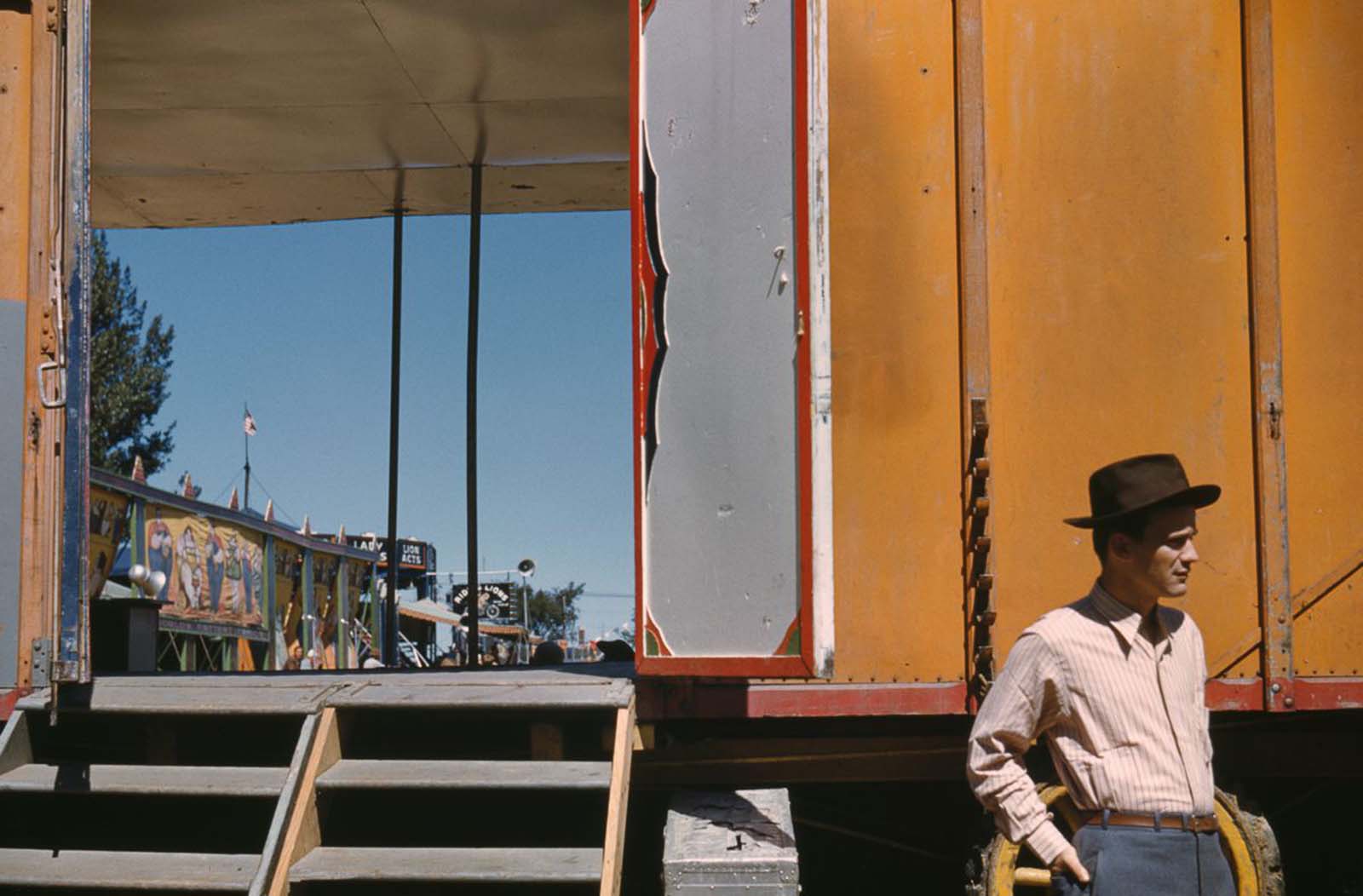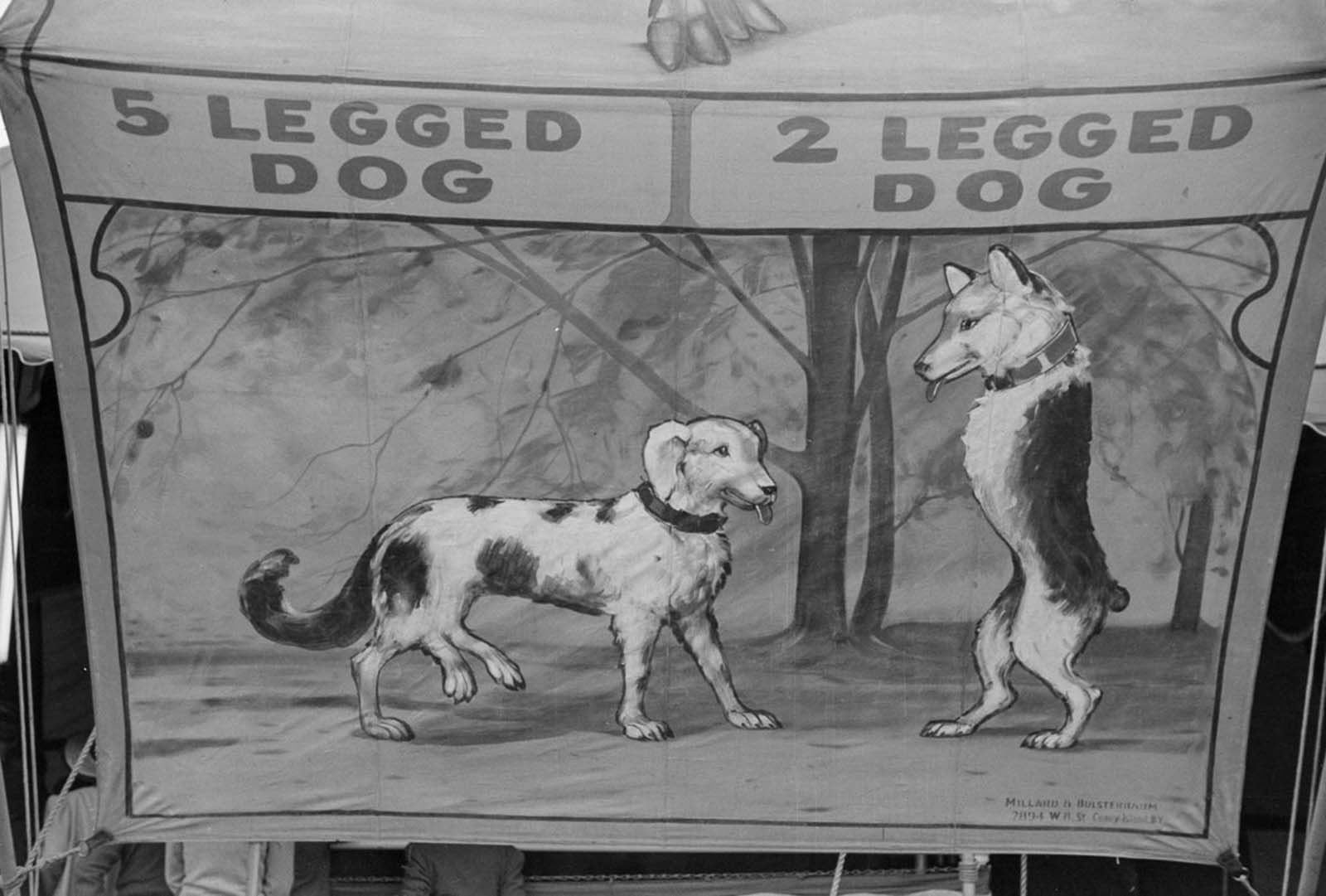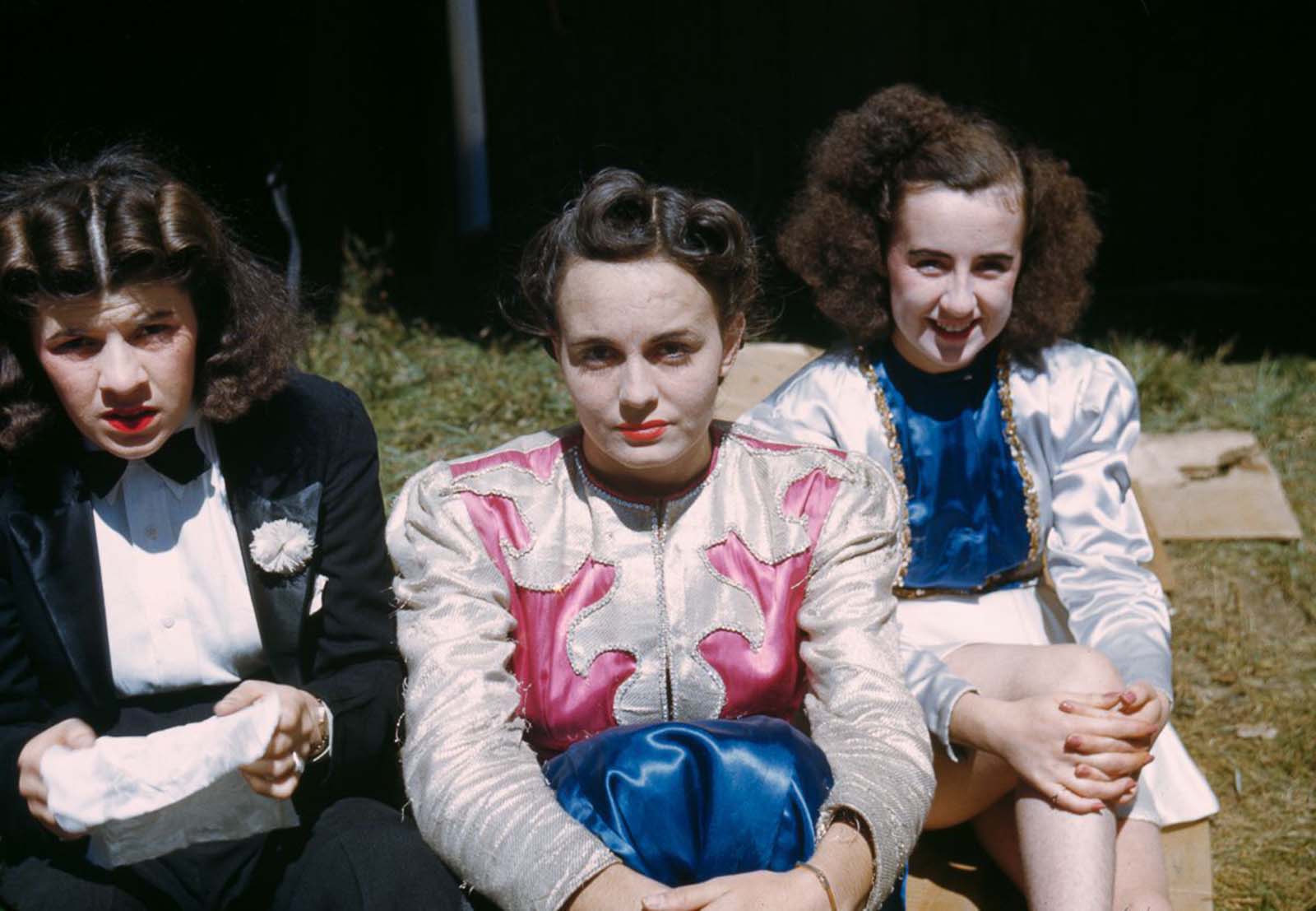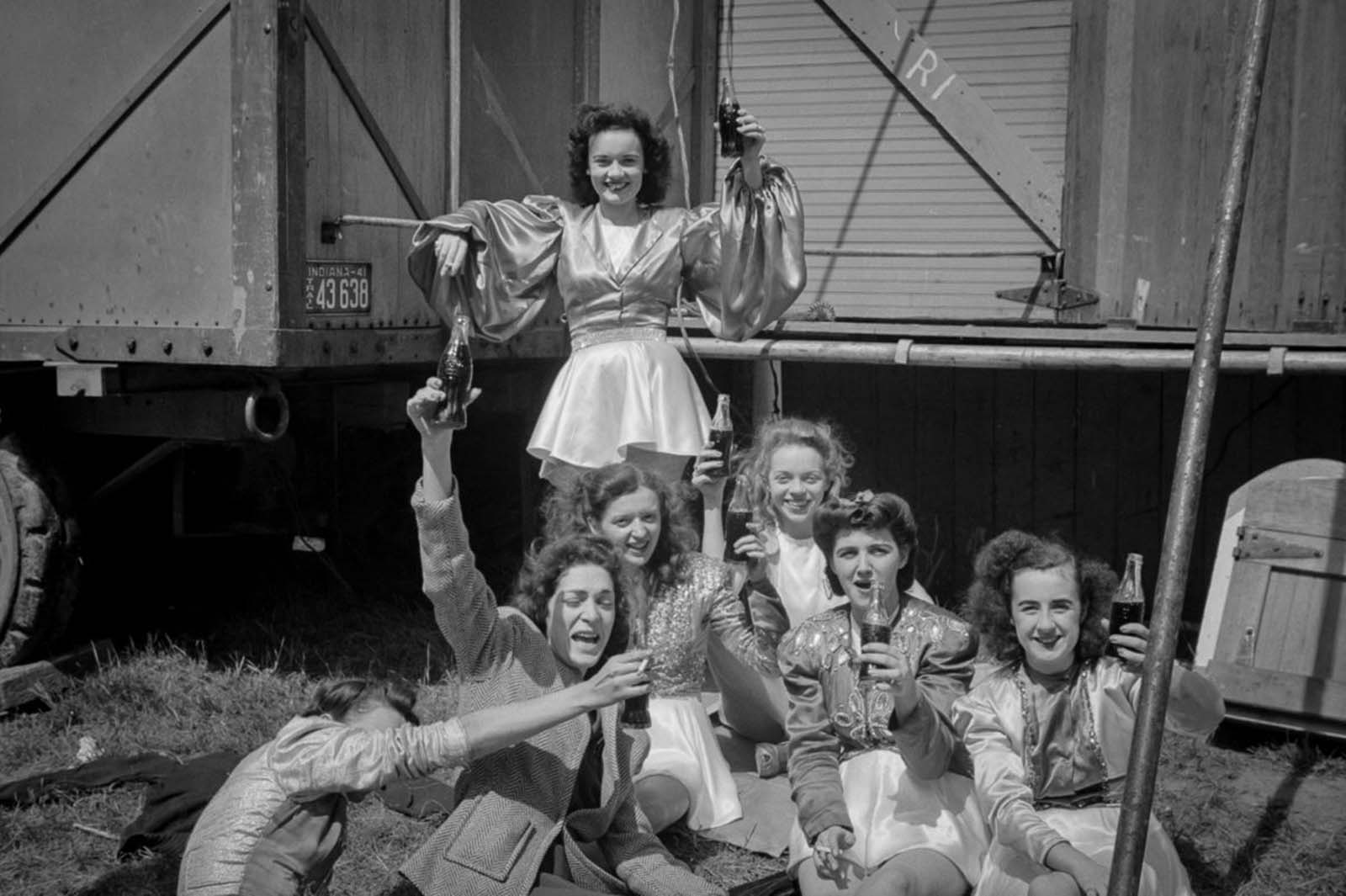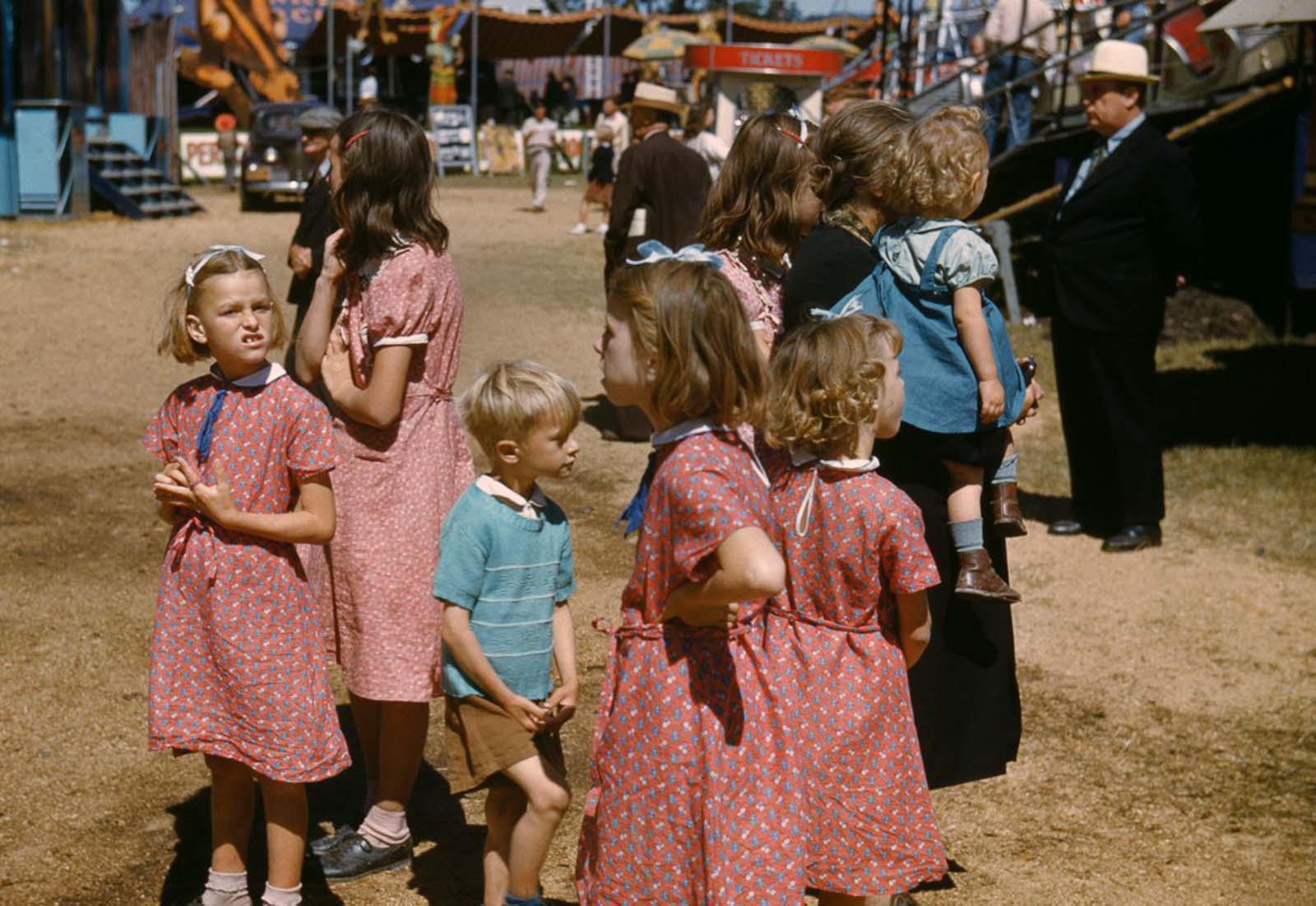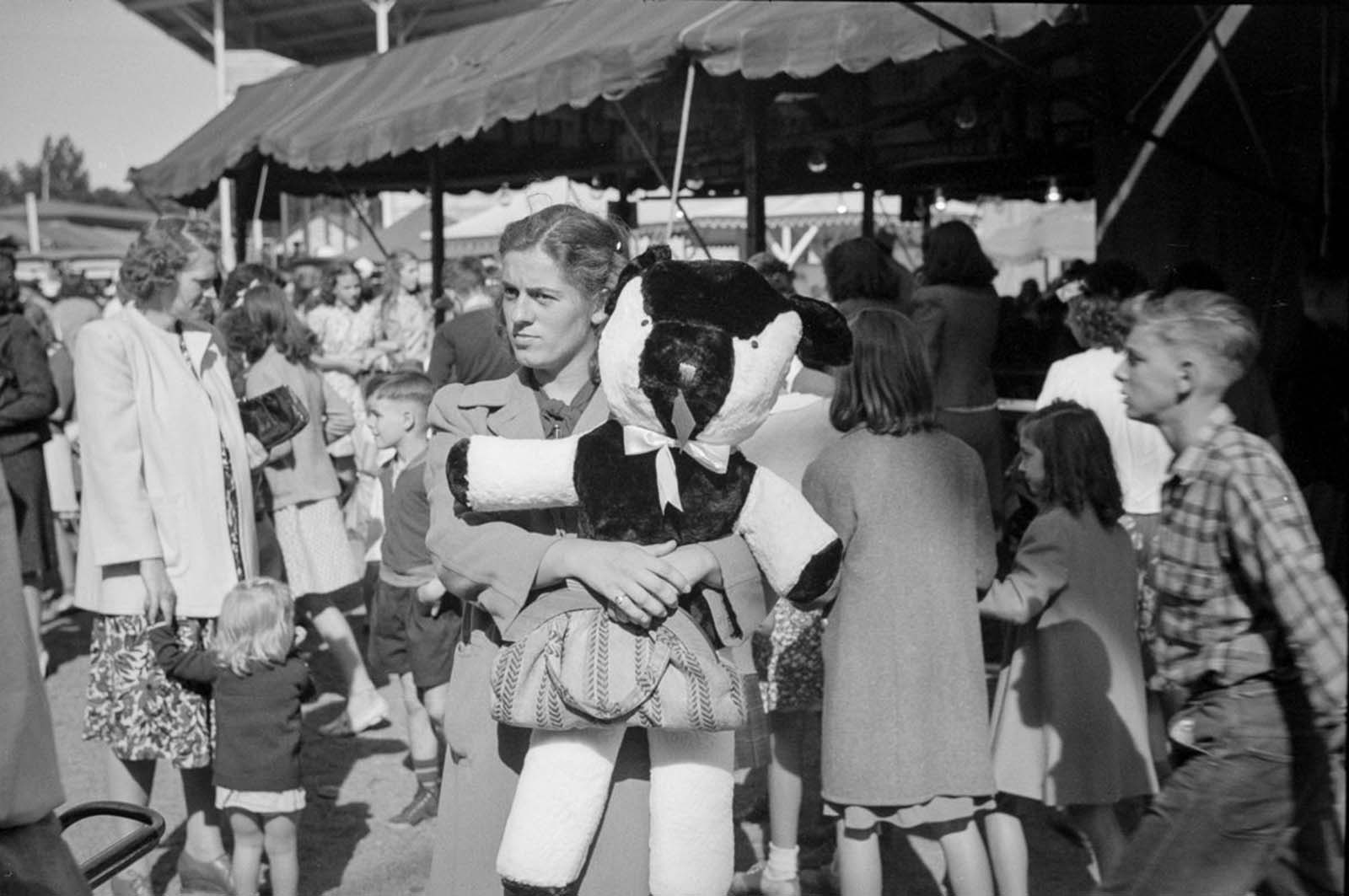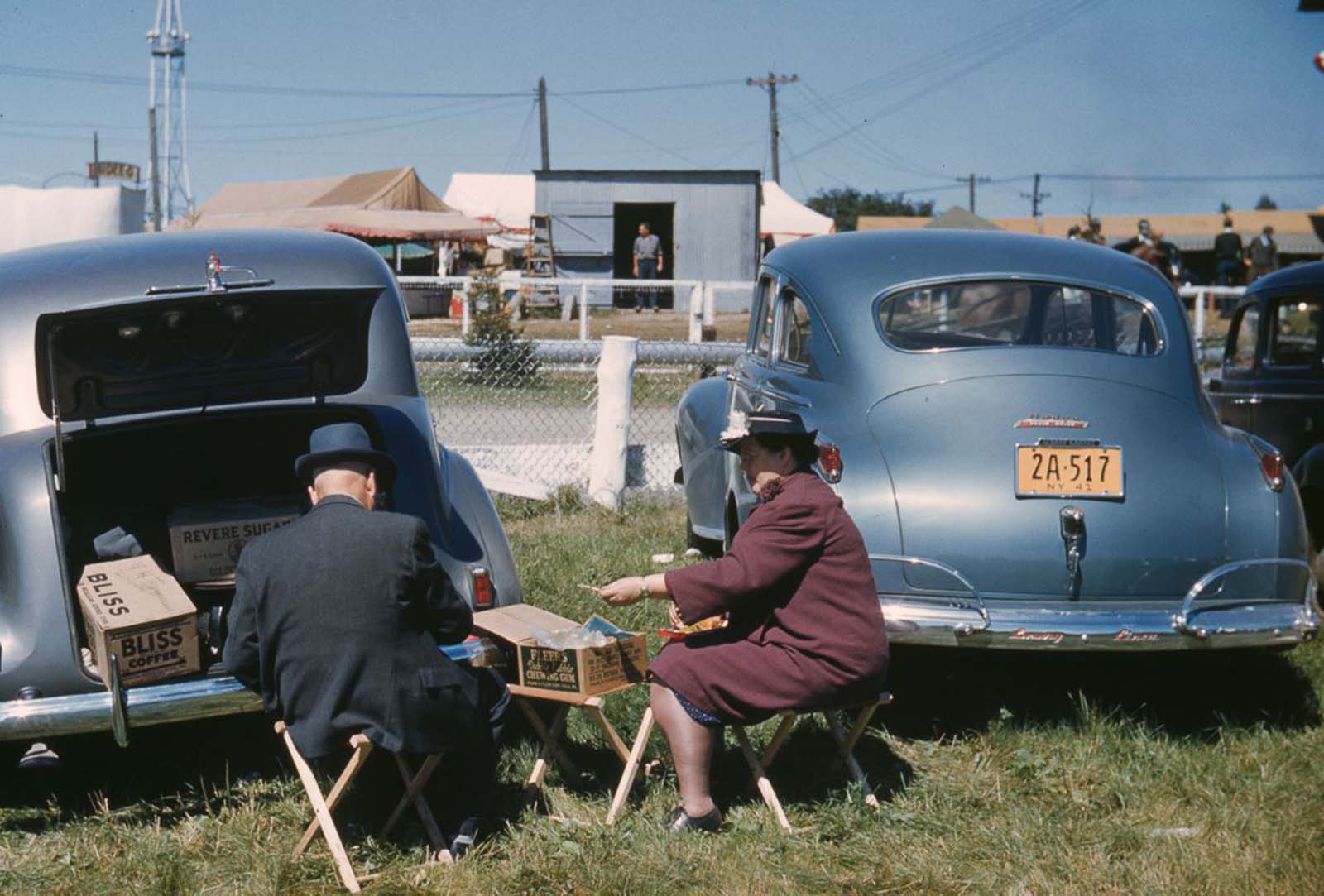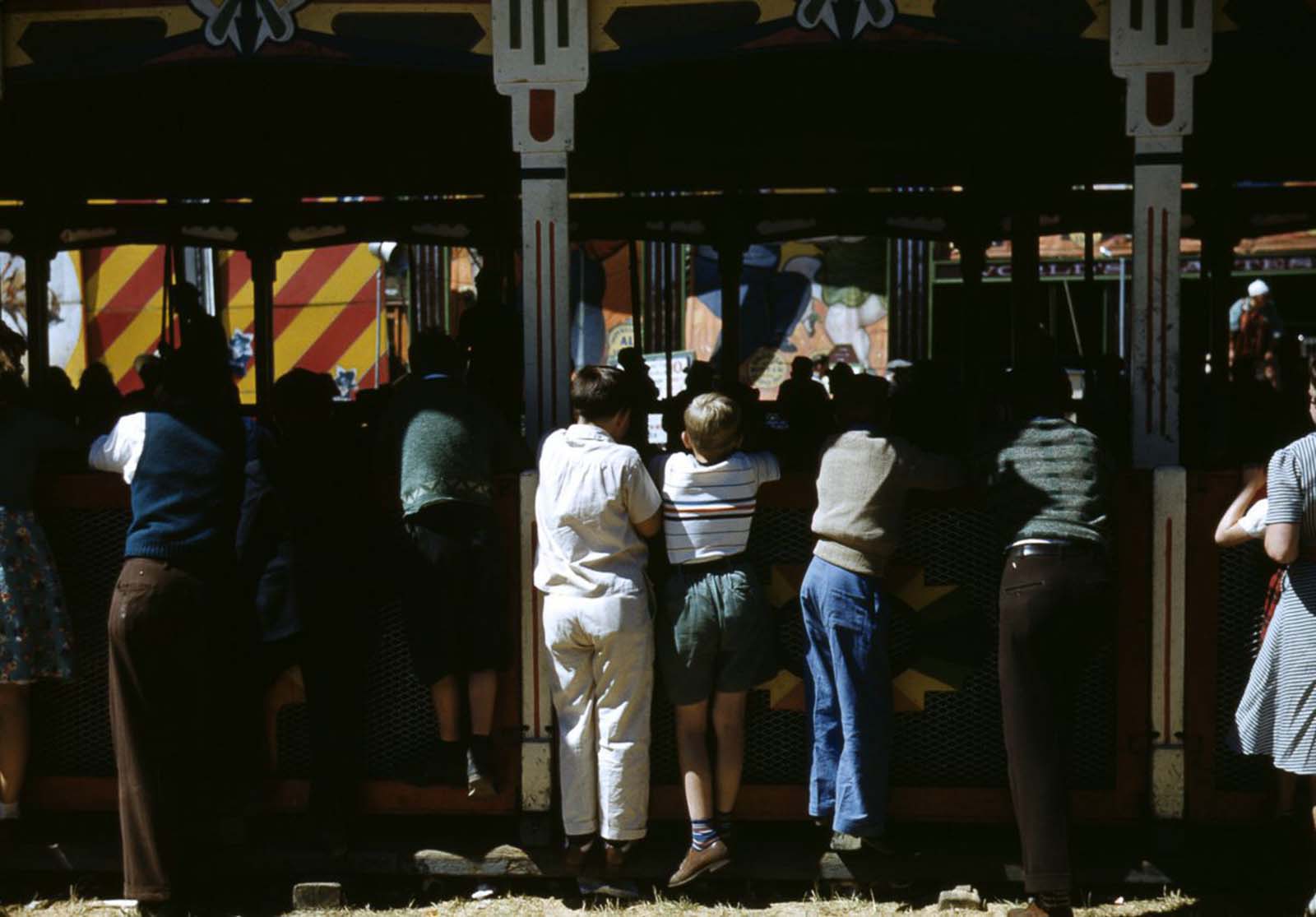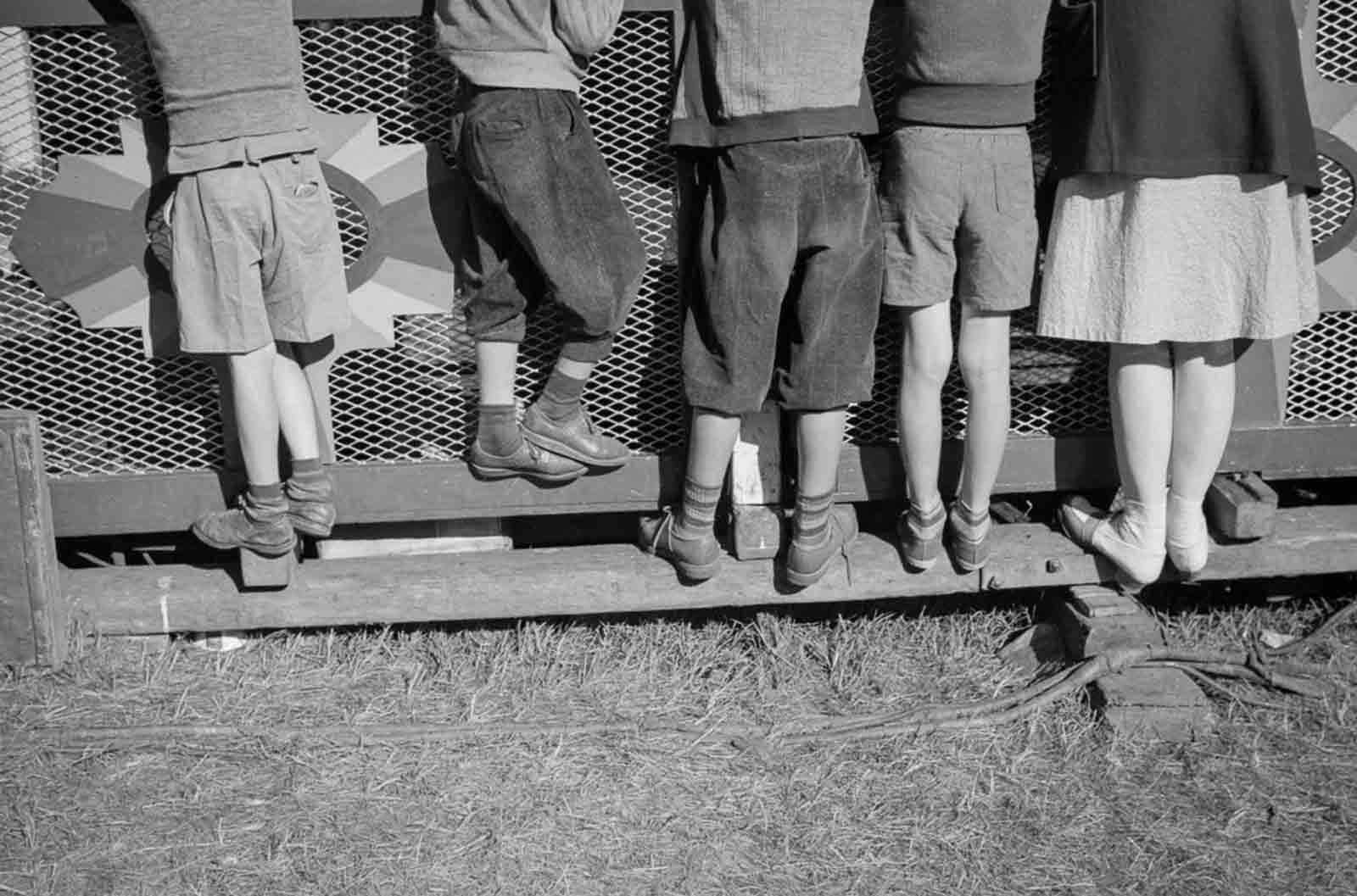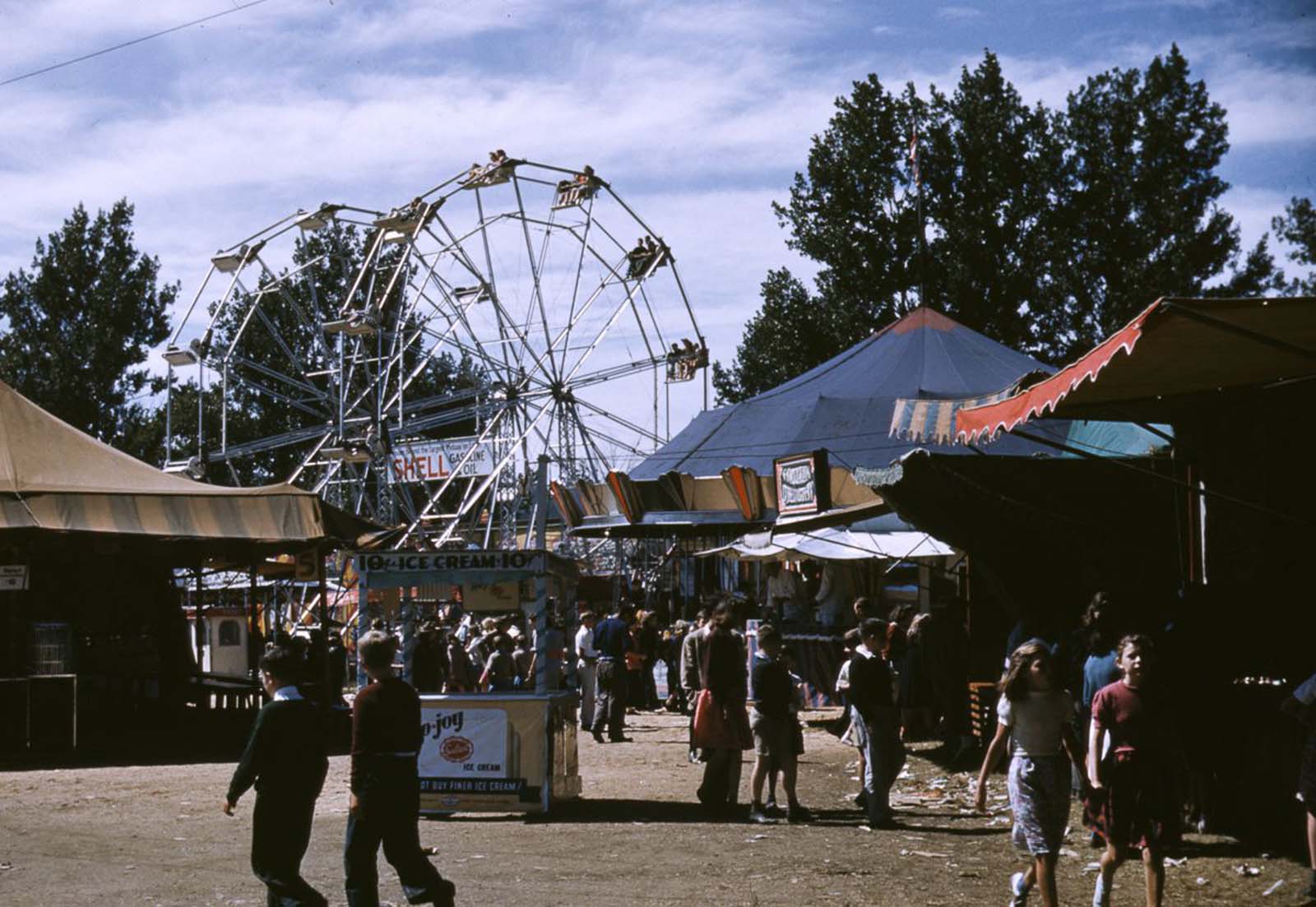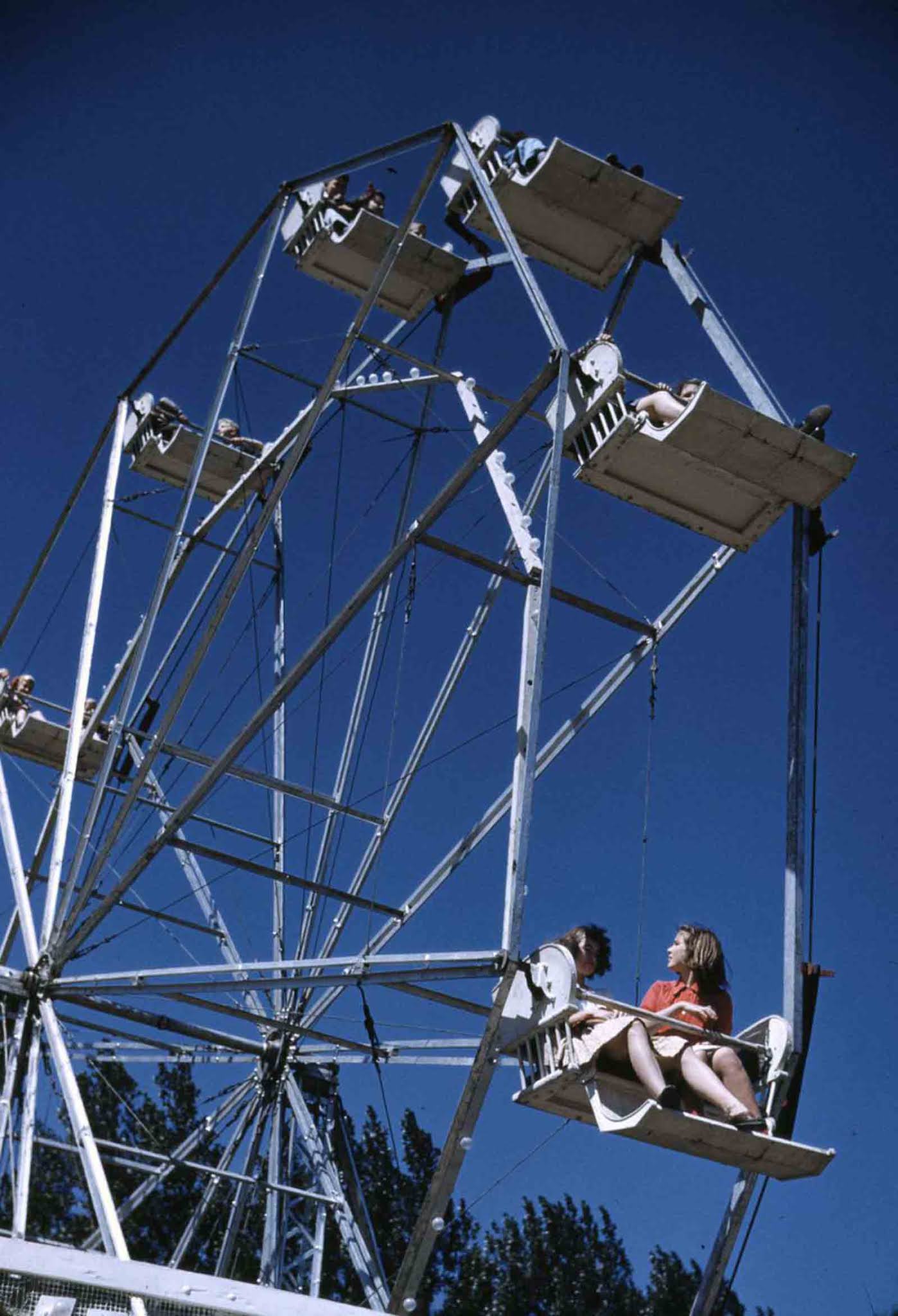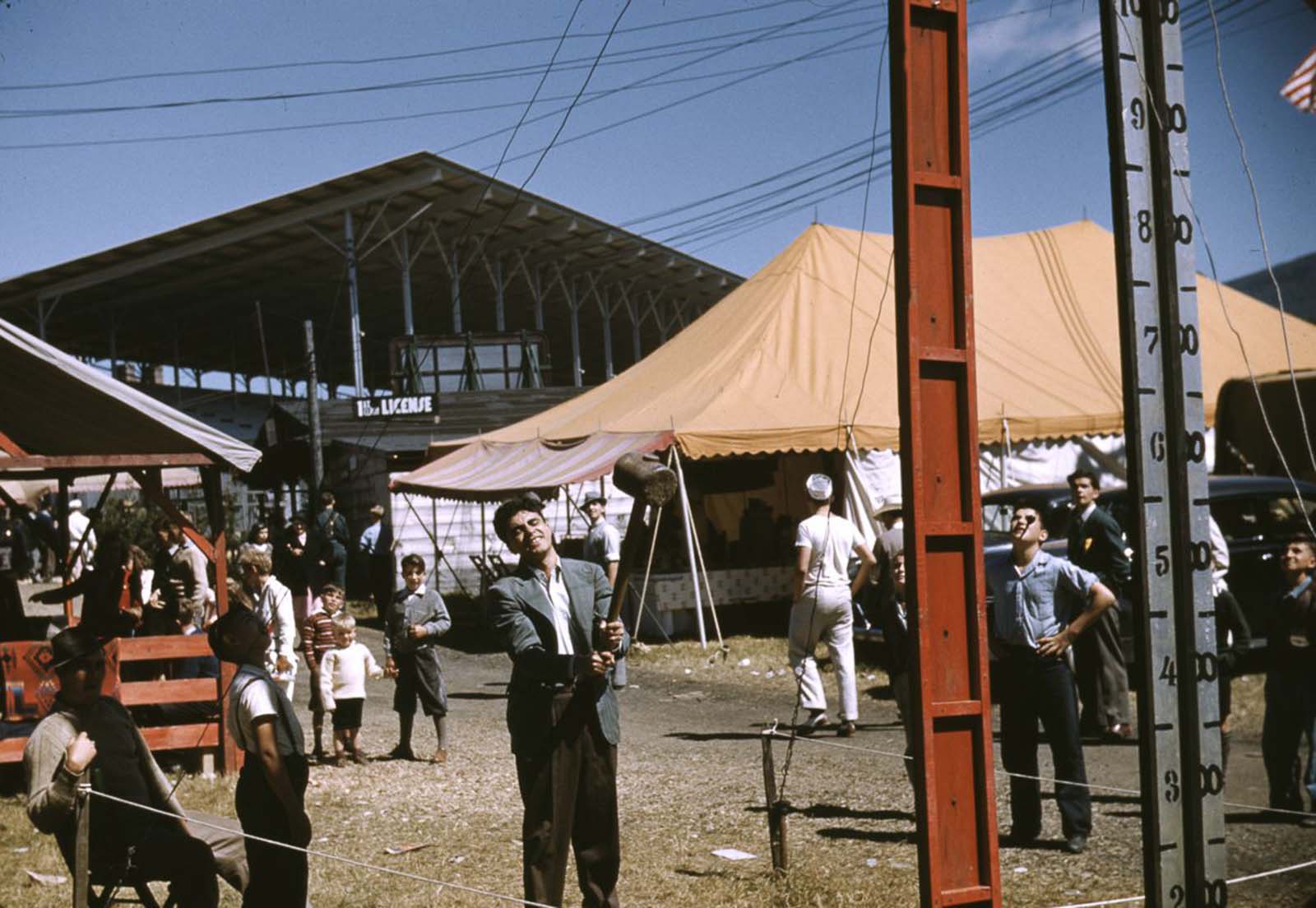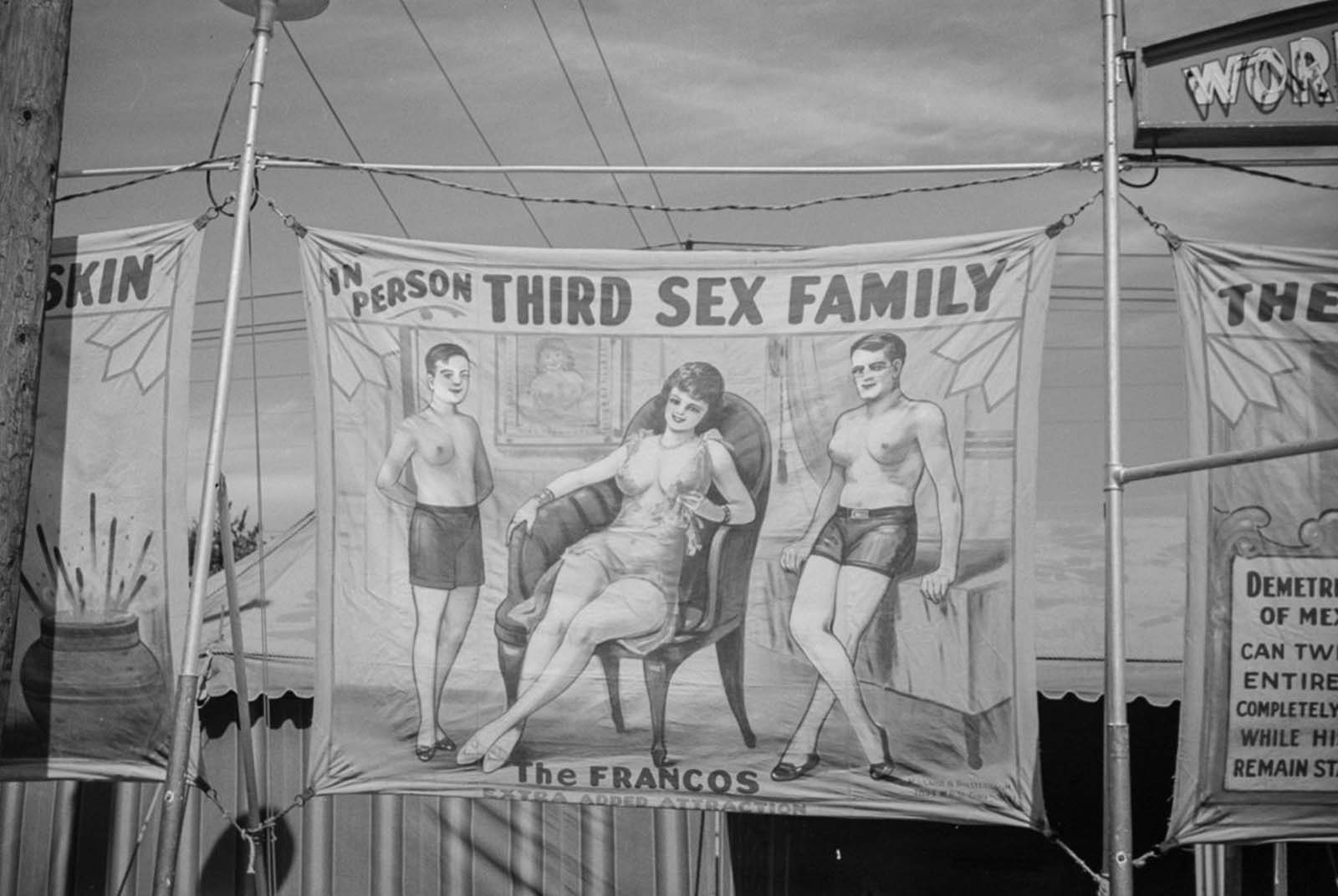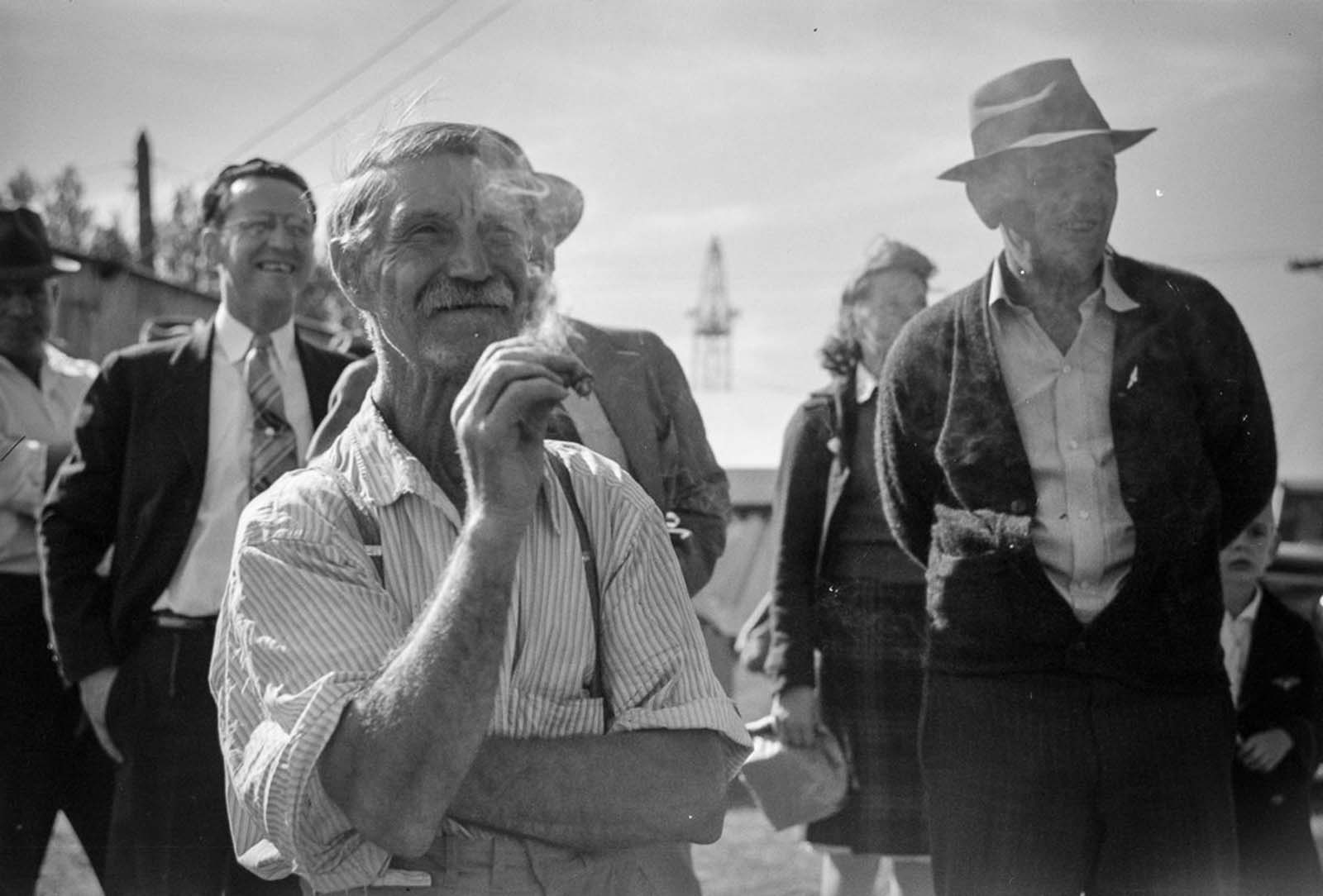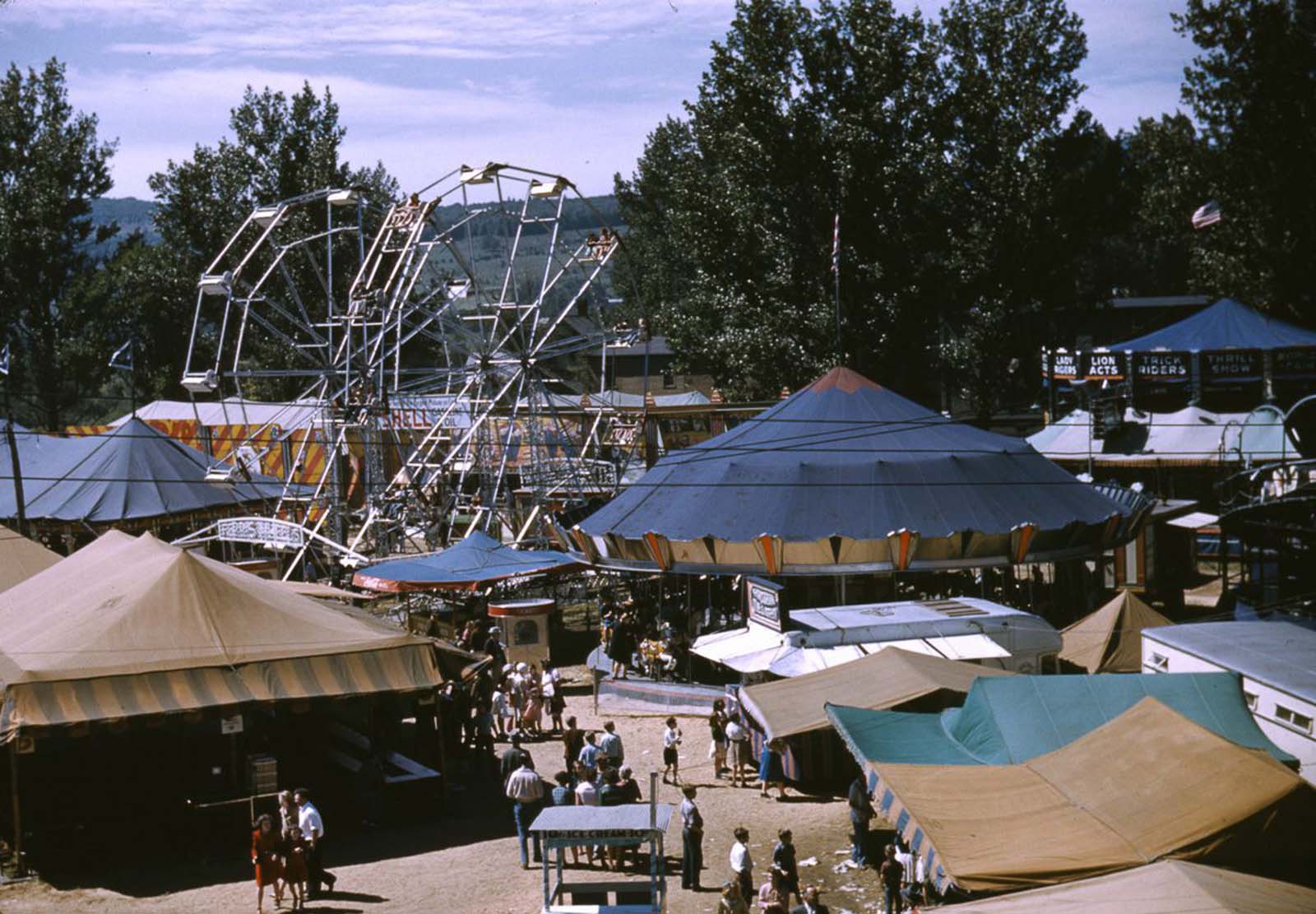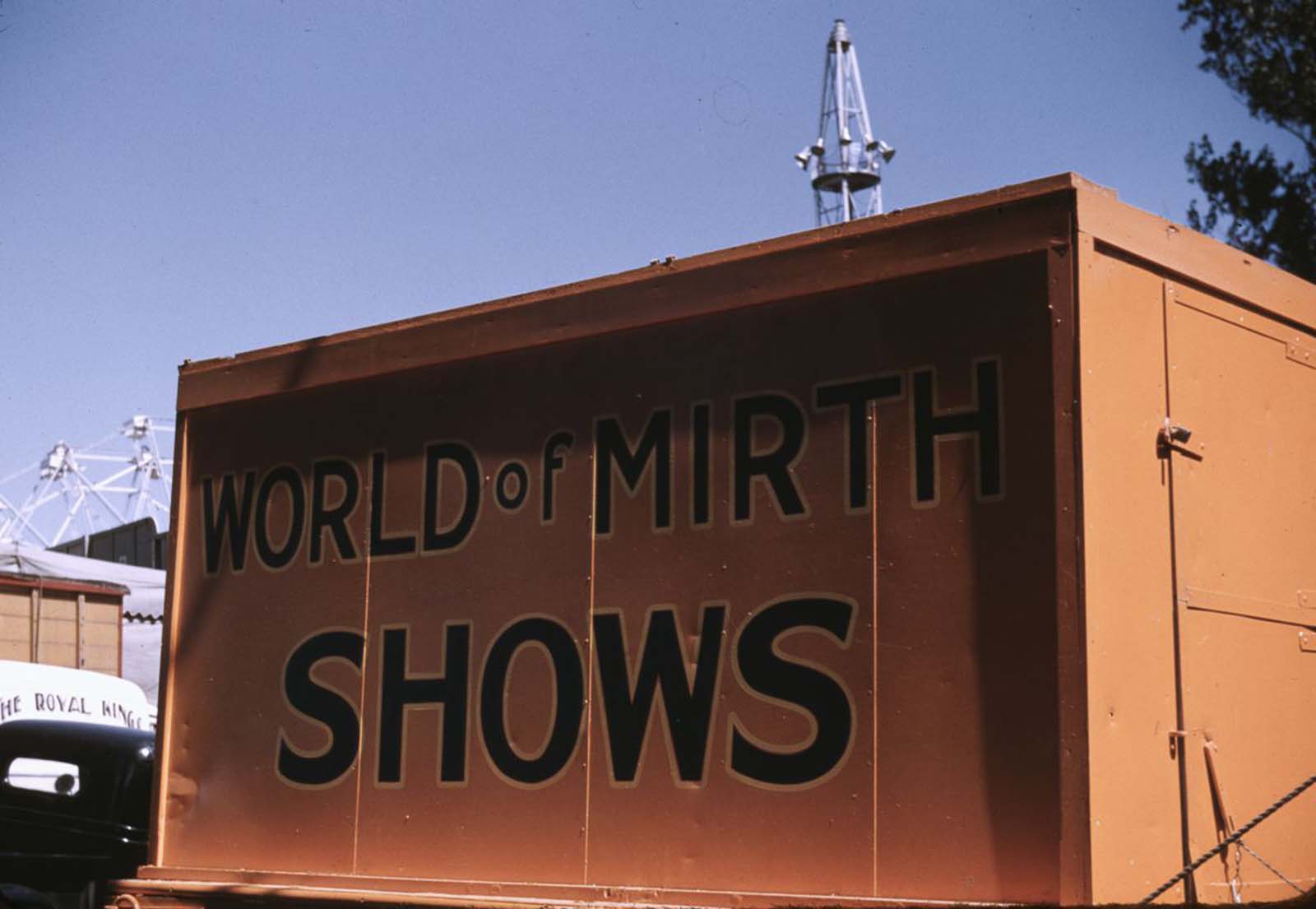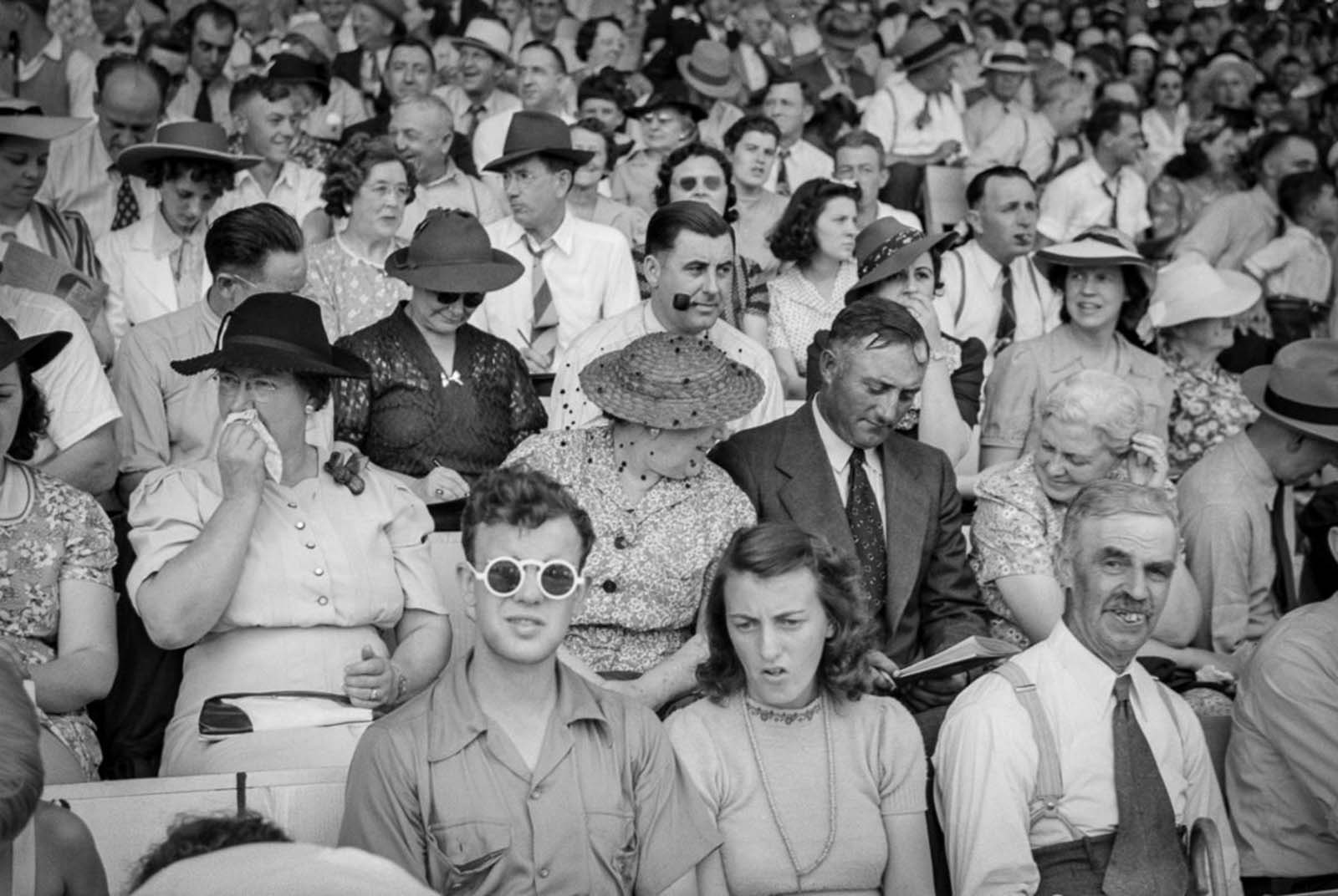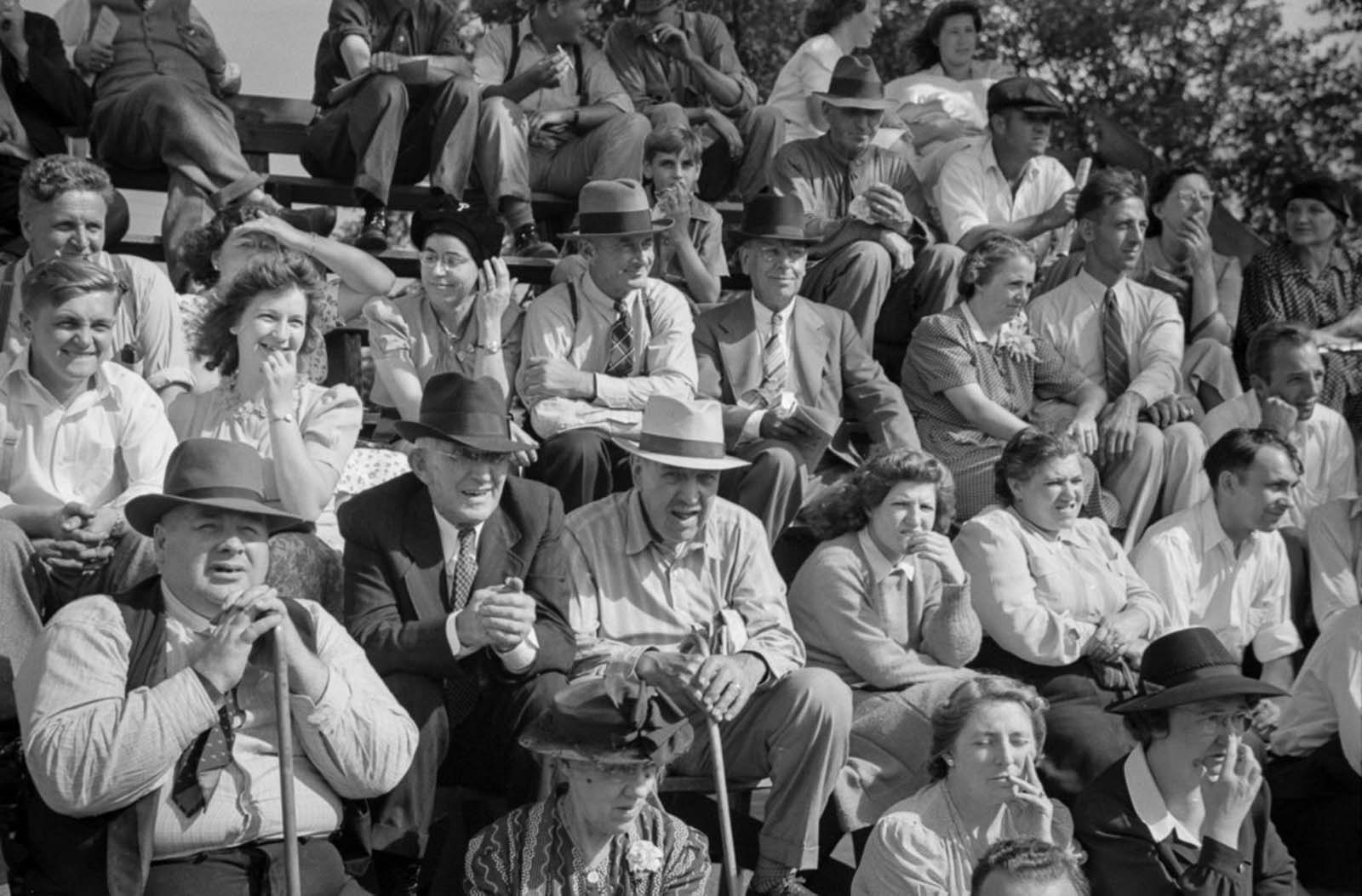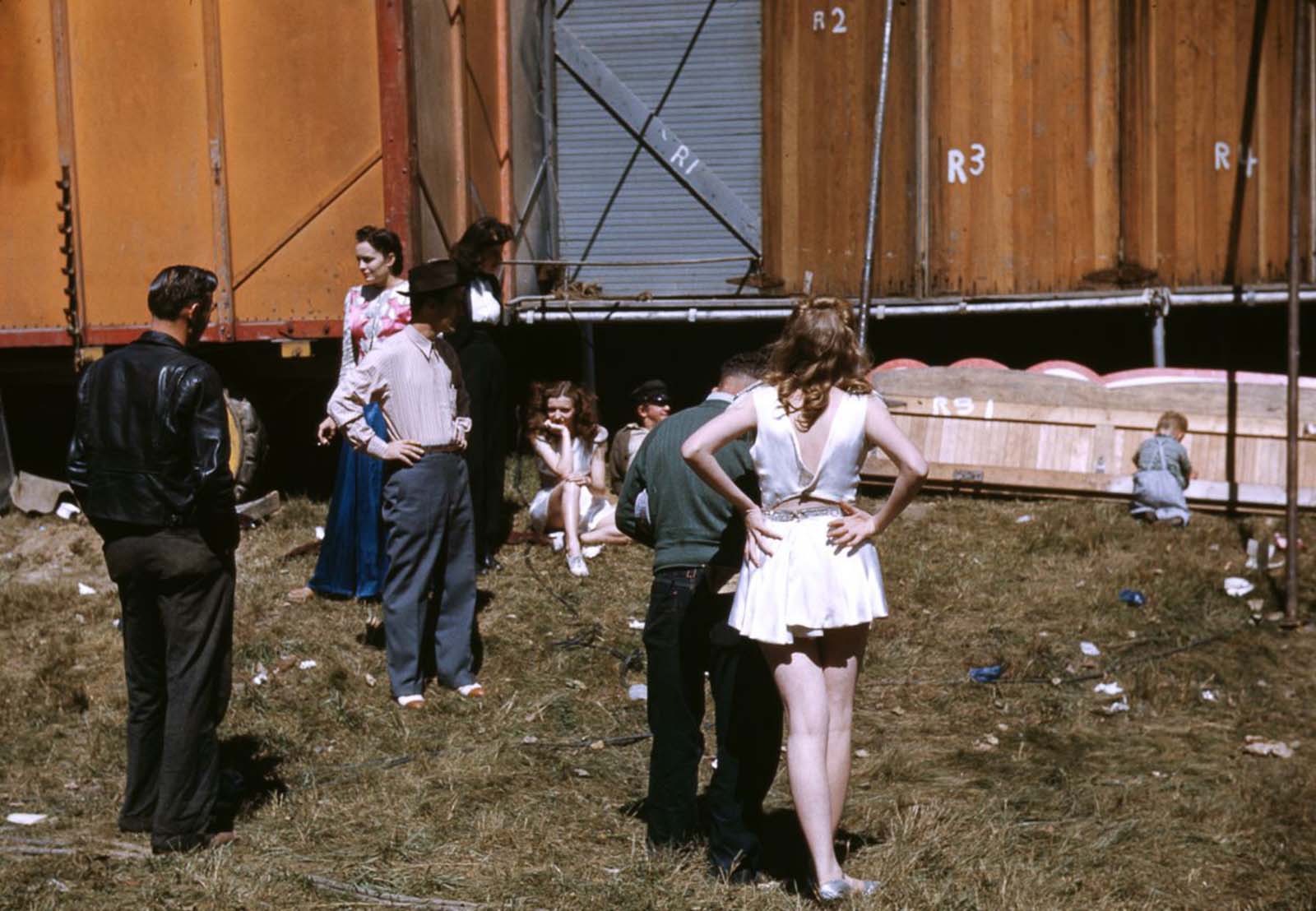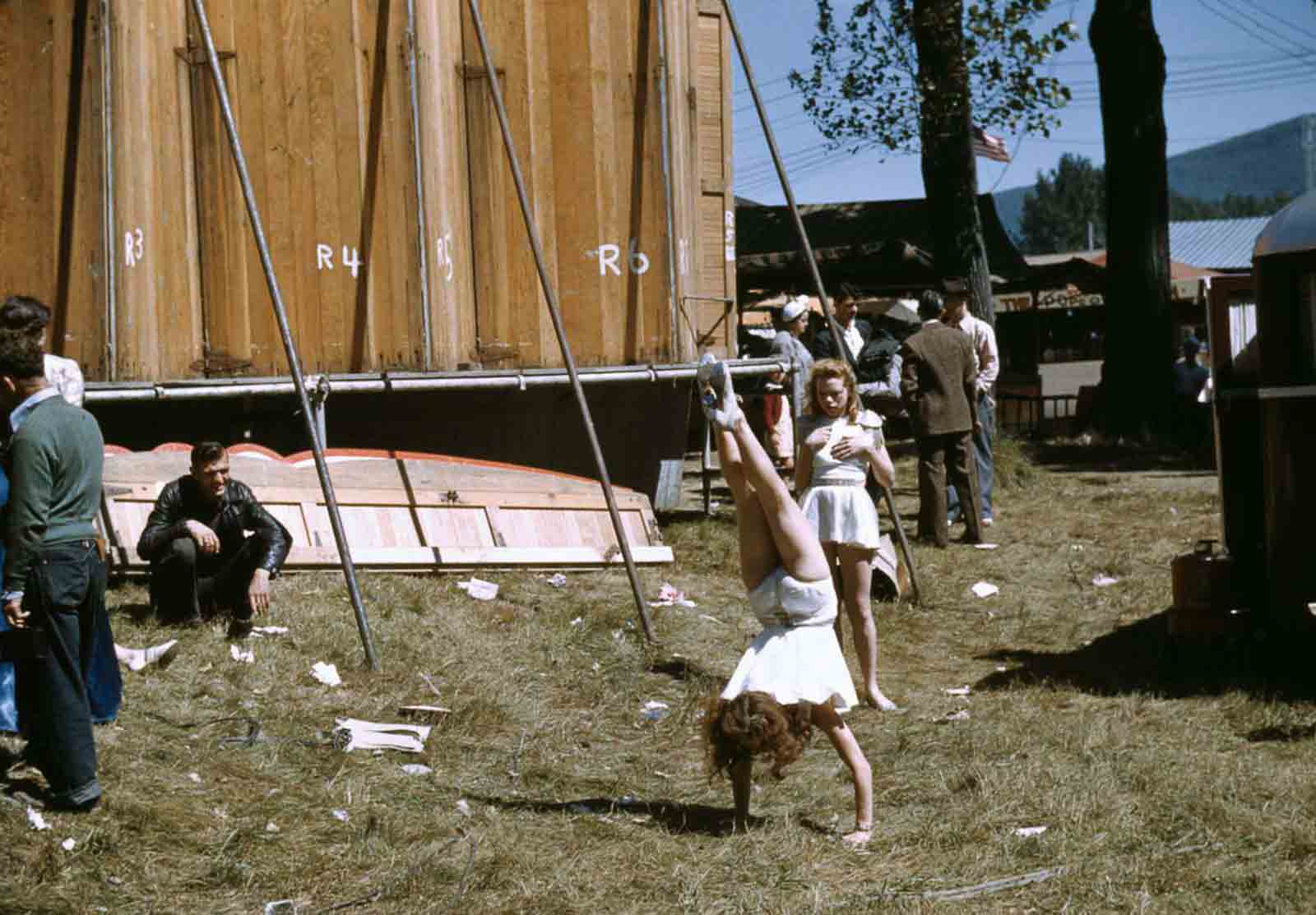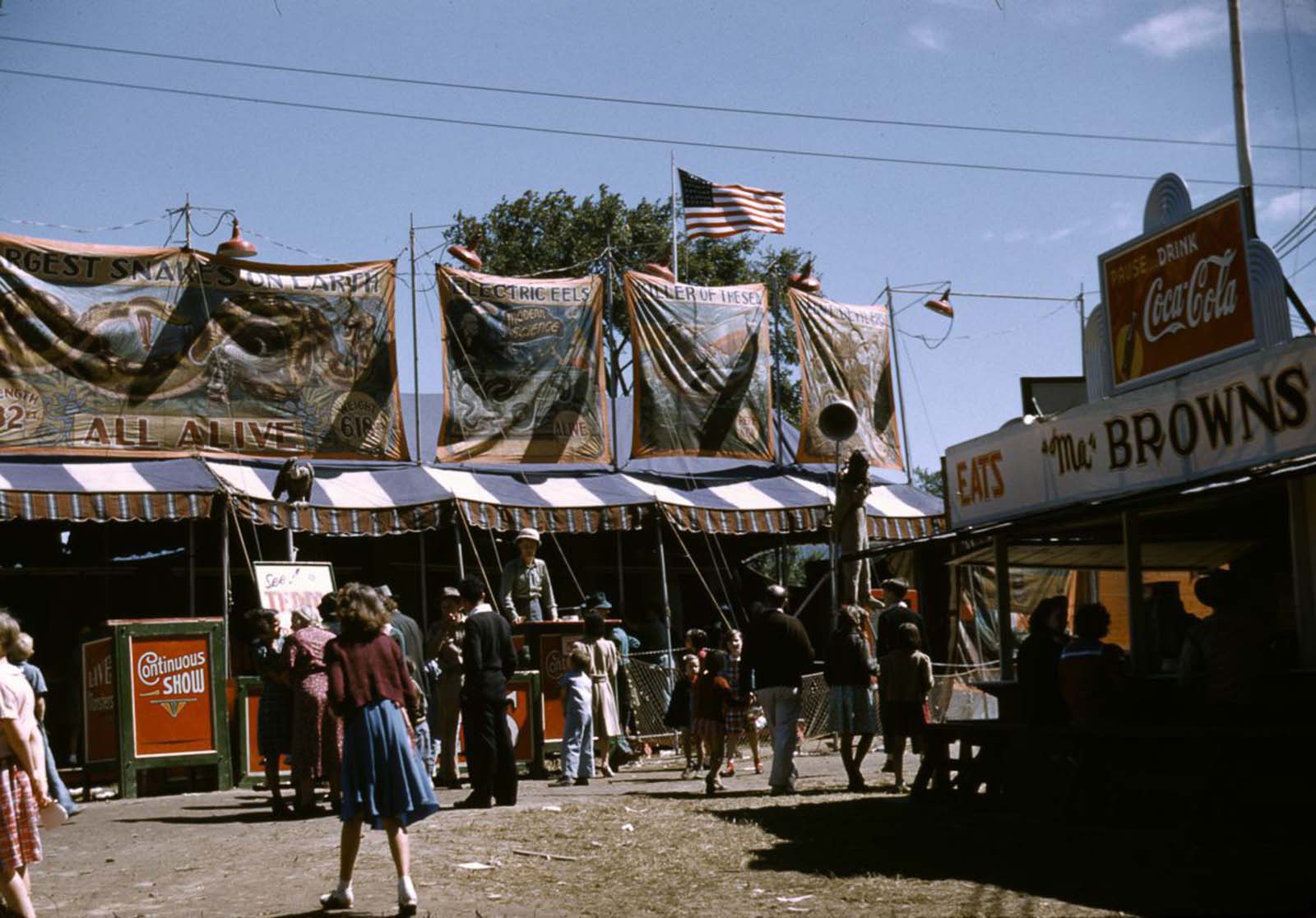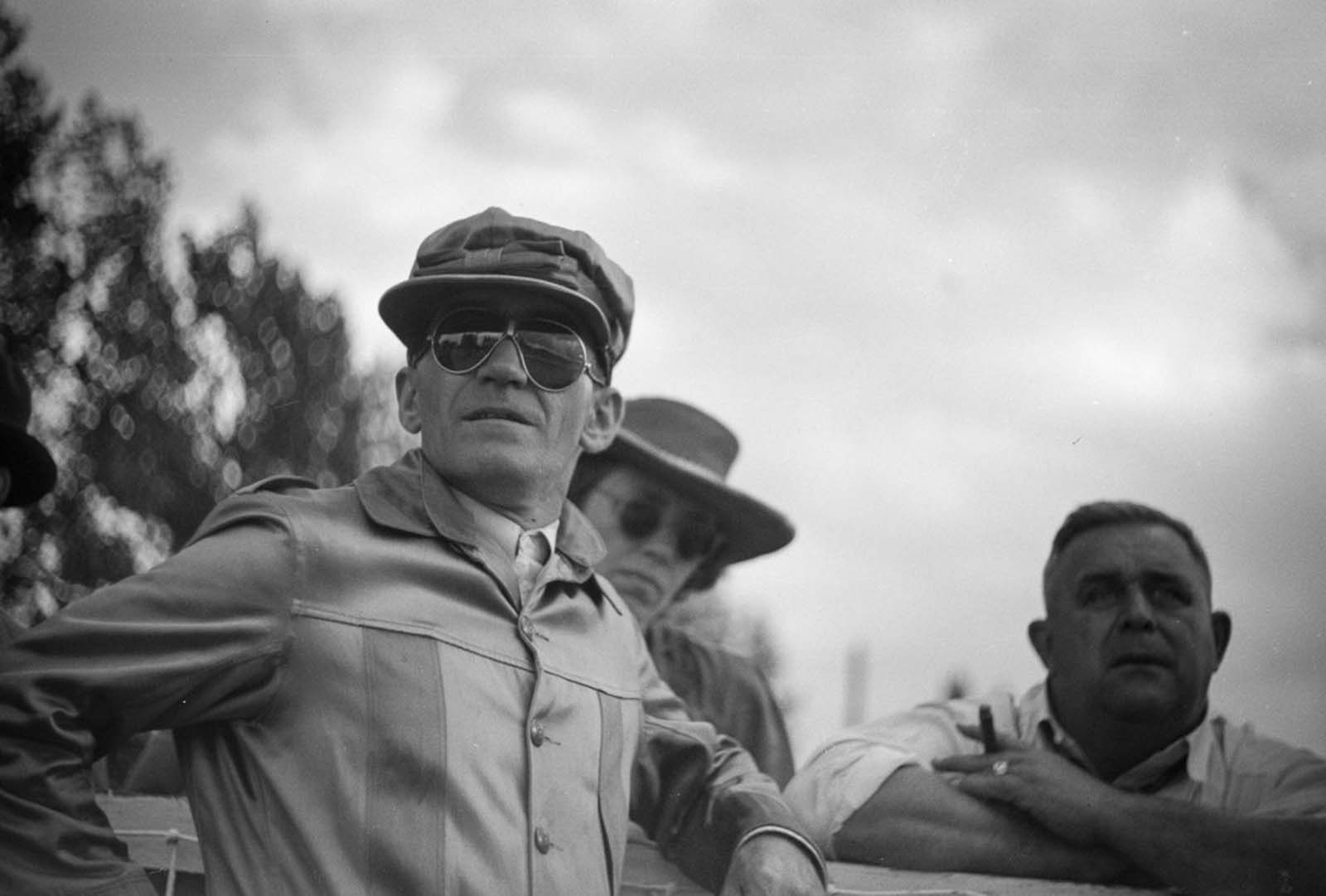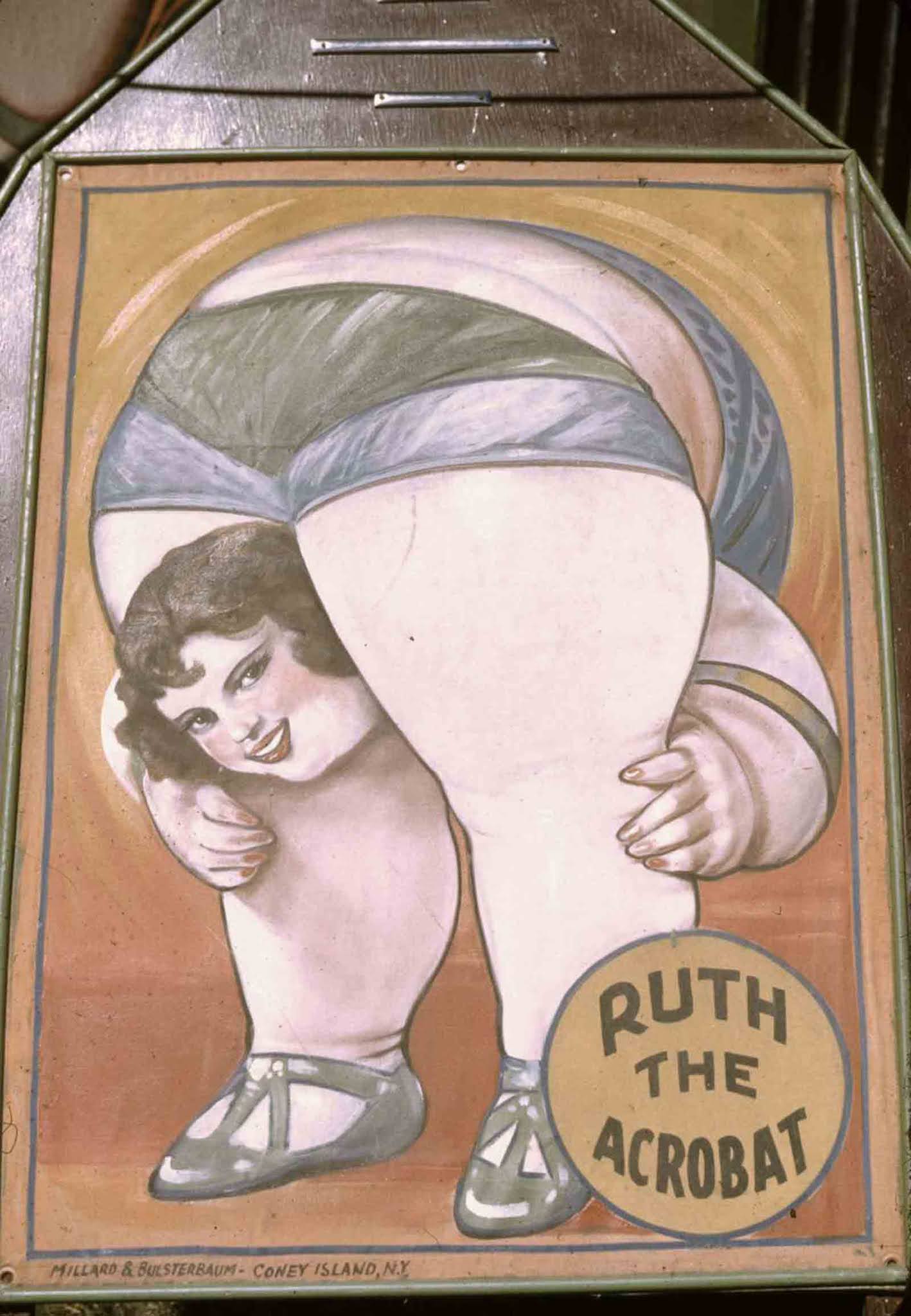By 1849, the fair had become so popular the Rutland Rail Yard put extra cars on trains to bring people from western New York and Vermont. It moved to a two-day event and then expanded to three days in 1893 as more and more attractions were added. In 1941, Farm Security Administration photographer Jack Delano documented the festivities at the fair in Rutland, even shooting some pictures in color. This photo collection documents the overall views of grounds, exhibits, carnival attractions, races, crowds, cattle judging, freak show, rodeo, “girlie” show, trapeze performers, etc. The official purpose of the fair was educating the farmer. And, in fact, farmers studied improved machinery, learned about new developments in agriculture, improved methods of agriculture, and livestock husbandry, but people also came to enjoy the sideshows, the long-unseen friends, and the beautiful surroundings. Facilities to support the fairs’ activities typically required permanent structures, and thus, permanent expenses. The fairs’ profits each year went largely toward upkeep and improvements. Nevertheless, quite often the financial demands for producing the fairs typically outran the funds of sponsoring agricultural societies of fair stockholders. In Vermont’s largely rural, isolated population, especially in the years prior to World War II, the annual fair was viewed as a holiday event, one of the entertainment features of the year. A Vermont observer in 1911 observed that “the county fair is about the only legalized good time left to the country people.” The fairs invariably took on attributes of a circus, with the carnival barker and the “midway” attracting the fair’s largest crowds (and producing its most sizable profits). There was no fair held between 1917–18 because of World War I, 1942–45 because of World War II, and 2020 because of the ongoing COVID-19 pandemic.
(Photo credit: Library of Congress). Notify me of new posts by email.
Δ Subscribe

